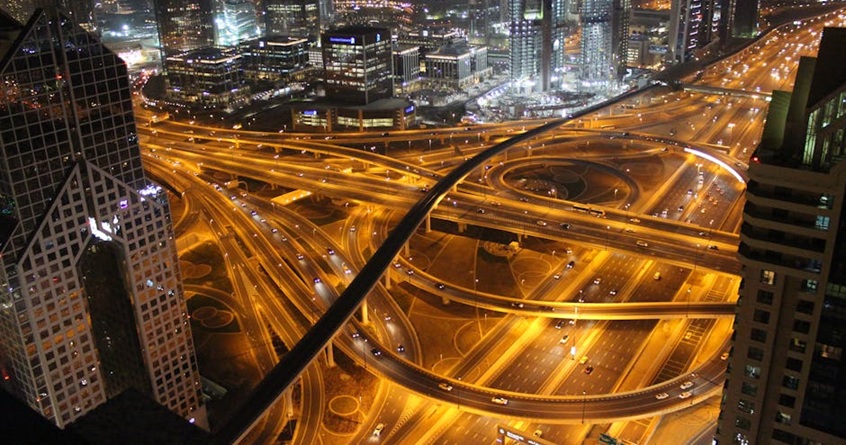Monthly Living Costs in Dubai 2026 — Real Breakdown
Friday, 21 November 2025
Dubai is a vibrant global city that appeals to singles, couples, families and professionals alike — thanks to its lifestyle, connectivity and opportunity. Whether you’re moving for work, investment, or a fresh start, understanding the monthly cost of living in Dubai is a smart move.
In this guide, we break down key expense categories — housing, utilities, groceries, transport, healthcare, schooling, entertainment and house help — so you can plan confidently for 2026.
Table of Contents
- Housing
- Groceries
- Utilities & Communication
- Transportation & Fuel
- Healthcare
- Schooling (for Families)
- Entertainment & Lifestyle
- House Help & Domestic Support
- Frequently asked questions
1. Housing
Housing is often the largest part of your monthly budget. Rent varies widely depending on location, property type and community.
- Prime districts (waterfront, luxury villas) command higher rents.
- More affordable options exist in suburban or older districts.
- Choosing a studio or one-bedroom apartment in a well-connected but less premium area can save significantly.
When reviewing your budget, allocate enough for rent plus security deposit, service charges and possible maintenance.
2. Groceries
Your grocery bill depends heavily on your lifestyle and food preferences.
- Imported goods and premium meat cuts cost more.
- Shopping at major international supermarkets may increase your spend.
- Smart budgeting: choose local produce, seasonal items and discount offers.
- Example: a premium steak may cost around AED 200 per kg; buying local alternatives can reduce cost.
3. Utilities & Communication
Expect the following costs for utilities and connectivity:
- Electricity & water (summer A/C usage increases the bill, villas cost more).
- Home Internet + TV packages typically start around AED 350/month, higher speed bundles cost more.
- Mobile plans range widely; basic post-paid plans from about AED 125/month, premium from much more.
Planning ahead for summer usage, especially in properties with pools or large gardens, helps avoid surprises.
4. Transportation & Fuel
Commuting costs depend on whether you drive or use public transport.
- Petrol in the UAE is relatively affordable compared to some global markets, but car model, age and distance matter.
- Public transport (metro, bus, ferry, taxi) is efficient and reliable. Monthly pass options exist.
- Example: a monthly public transport pass may cost around AED 350 for unlimited travel across zones.
Living closer to your workplace or transport hub reduces commute time and cost.
5. Healthcare
Health insurance is mandatory for all residents. Costs vary depending on coverage.
- Basic individual plans from around AED 600/year.
- Comprehensive individual coverage around AED 5,500/year.
- Family plans vary: from AED 15,000 to AED 25,000/year, higher for global benefits.
- If you employ domestic help, you’ll need to cover their basic medical plan.
Budgeting for health insurance is essential in your monthly cost planning.
6. Schooling (for Families)
If you have children, schooling is a major expense.
- Top international schools: AED 4,500 – AED 11,500/month depending on grade and curriculum.
- Indian-curriculum schools: around AED 30,300 – AED 73,800/year depending on level.
- Additional costs: uniforms, transport, trips, exam fees.
Choosing the right school based on budget and educational goals helps manage costs effectively.
7. Entertainment & Lifestyle
Living in Dubai means access to world-class entertainment, dining and leisure. That said, your monthly spend will vary depending on lifestyle:
- Regular fine-dining and premium delivery apps increase spend.
- Parks, cinemas, theme parks and weekend get-aways add up.
- Budgeting a leisure allowance ensures you enjoy life without overspending.
8. House Help & Domestic Support
Many residents choose some form of domestic help — full-time or part-time.
- Full-time housemaid: visa and contract required (two-year contract example). Salary varies AED 1,500 to AED 5,000/month depending on duties.
- Part-time cleaning/maid services: hourly rates AED 35 – AED 65/hour.
- These costs add to your monthly living budget and should be considered if you plan domestic support.
Dubai’s monthly cost of living is flexible — you can design a budget for an affordable lifestyle or opt for luxury if preferred. By understanding key categories and making informed selections of location, property type and lifestyle choices, you can balance costs and enjoy the benefits of living in this global city.
As you plan for 2026, remember:
- Prioritise housing and utilities first.
- Choose groceries and lifestyle habits that match your budget.
- Factor in long-term expenses like schooling and health insurance.
- Always keep some buffer for surprises and lifestyle upgrades.
With smart planning, your monthly budget in Dubai can deliver both comfort and value.
Frequently Asked Questions (FAQs)
What is a typical rent range for an apartment in Dubai?
Rent varies widely. In well-connected suburban areas you can find affordable options, while prime waterfront or villa locations will cost significantly more.
How much should I budget monthly for utilities and internet?
For a standard apartment, utilities and internet might cost around AED 350/month for base internet package plus modest utility use; villas or high-usage properties will be higher.
Are public transport and commuting affordable in Dubai?
Yes — Dubai offers an efficient metro, bus and ferry network. A monthly pass may cost around AED 350, depending on zones travelled.
How expensive is schooling for children in Dubai?
International school fees vary significantly. Some top schools cost AED 4,500 – AED 11,500/month, depending on grade and curriculum. Indian-curriculum schools offer more affordable options.
Can I keep living costs lower in Dubai?
Absolutely. By choosing suburbs, shopping smart for groceries, using public transport, and picking moderately priced lifestyle choices, you can maintain a comfortable yet budget-conscious lifestyle in Dubai




